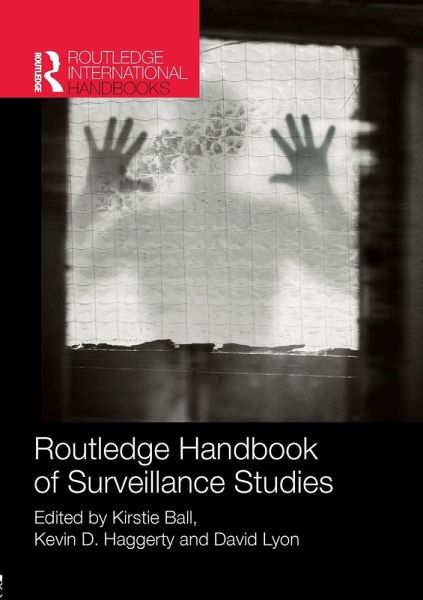
Routledge Handbook of Surveillance Studies
Versandkostenfrei!
Versandfertig in 1-2 Wochen
77,99 €
inkl. MwSt.
Weitere Ausgaben:

PAYBACK Punkte
39 °P sammeln!
Surveillance is a central organizing practice. Gathering personal data and processing them in searchable databases drives administrative efficiency but also raises questions about security, governance, civil liberties and privacy. Surveillance is both globalized in cooperative schemes, such as sharing biometric data, and localized in the daily minutiae of social life. This innovative Handbook explores the empirical, theoretical and ethical issues around surveillance and its use in daily life. With a collection of over forty essays from the leading names in surveillance studies, the Handbook ta...
Surveillance is a central organizing practice. Gathering personal data and processing them in searchable databases drives administrative efficiency but also raises questions about security, governance, civil liberties and privacy. Surveillance is both globalized in cooperative schemes, such as sharing biometric data, and localized in the daily minutiae of social life. This innovative Handbook explores the empirical, theoretical and ethical issues around surveillance and its use in daily life. With a collection of over forty essays from the leading names in surveillance studies, the Handbook takes a truly multi-disciplinary approach to critically question issues of: surveillance and population control policing, intelligence and war production and consumption new media security identification regulation and resistance. The Routledge Handbook of Surveillance Studies is an international, accessible, definitive and comprehensive overview of the rapidly growing multi-disciplinary field of surveillance studies. The Handbook's direct, authoritative style will appeal to a wide range of scholars and students in the social sciences, arts and humanities.














